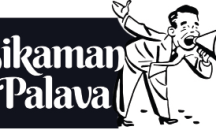Overview of the copyright law of Ghana Part 1

Ghana’s experience with copyright legislation
Copyright is the part of Intellectual Property (IP) law, which grants legal protection to authors or creators of literary and artistic works such as books, music, paintings, films, computer software, sculpture, etc.
The first copyright legislation in Ghana was the Copyright Ordinance of 1914 (Cap 126). This law, which was a replica of the British Copyright Act of 1911 was repealed in 1961 and replaced by the Copyright Act, 1961 (Act 85). Act 85 was also repealed by the Copyright Law of 1985, Provisional National Defence Council Law (PNDC Law 110). PNDC Law 110 was considered as a landmark piece of legislation because it generally conformed to the standards of the Berne Convention for the Protection of Literary and Artistic Works and also contained other significant provisions such as the provision for the establishment of a collective administration society and the Copyright Office, an office responsible for the administration of copyright in Ghana.
Although PNDC Law 110 was considered an important milestone in Ghana’s copyright legislative experience, it soon proved inadequate in the face of the rapid technological developments of the 1990s and the international copyright treaties concluded after 1985, i.e. the Agreement on Trade-Related Aspects of Intellectual Property Rights (TRIPS) (1994), the WIPO Copyright Treaty (WCT) (1996) and the WIPO Performances and Phonograms Treaty (WPPT) (1996). Ghana as a developing country was also obliged under the TRIPS Agreement to amend its copyright legislation to be TRIPS compliant by the year 2000. The Copyright Act, 2005 (Act 690) was enacted in 2005 to address the inadequacies of PNDC Law 110.
The law governing copyright in Ghana is the Copyright Act, 2005 (Act 690) as amended and its implementing regulations, Copyright Regulations, 2010 (L.I. 1962).
Act 690, to a large extent conforms to the TRIPS Agreement, the WCT and the WPPT.
There is also other useful legislation, which complements the Copyright Act, 2005 (Act 690) in the administration of copyright in Ghana. These are the High Court Civil Procedure Rules, 2004 (C.I. 47) which provide specialized rules for the enforcement of intellectual property rights (IPR) and the Electronic Transactions Act, 2008 (Act 772).
It is worth noting that the Copyright Act, 2005 (Act 690) contains a number of enhanced legislative provisions and some ‘novel’ institutions, which aim to make the administration of copyright more effective. These include:
1. Enhanced economic rights for copyright owners
2. Enhanced rights of performers
3. Broadened scope of works eligible for copyright protection
4. Enhanced penalty for copyright infringement
5. Liberalised collective management system
6. Institutionalised levy on devices used for copying copyright protected works
7. Establishment of the Copyright Monitoring Team
8. Establishment of the Copyright Tribunal to adjudicate in disputes relating to royalties
9. Expanded provisions for protection, use and administration of folklore
10. Voluntary registration of copyright
Subject matter of copyright protection
Act 690 expanded the scope of copyright protection as compared to what could be obtained under PNDC Law 110.
The works eligible for copyright protection under Section 1 of Act 690 are as follows:
1. Literary work (e.g. novels, textbooks, stories, poetical works, stage directions, film scenarios, encyclopedias, dictionaries, databases, essays, histories, etc.)
2. Artistic work (e.g. painting, architectural design, etching, lithograph, engraving, maps, fashion and wood design, sculpture, etc.)
3. Musical work
4. Sound recording
5. Audiovisual work
6. Choreographic work
7. Derivative work, and
8. Computer software or programmes
An author, co-author or joint author of any of the above-mentioned works is entitled to copyright protection as stipulated in the law.
An author within the context of the law is a natural person whose intellectual activity leads to the creation of a work.
Although copyright protection is automatically acquired from the time a work is created, the work must satisfy the following conditions in order to enjoy the copyright protection:
1. It must be original in character (i.e. must be a product of the independent effort of the author).
2. It must be fixed in any definite medium of expression.
(a) It must be created by a citizen of Ghana or a person who is ordinarily resident in the Republic,
(b) It must be first published in Ghana and, in the case of a work first published outside Ghana, it must be subsequently published in the Republic within thirty days of its publication outside Ghana, OR
(c) It must be a work in respect of which Ghana has an obligation under an international treaty to grant protection.
Ghana is party to the following international treaties and is therefore obliged to grant protection to the works of authors from other Contracting Parties.
The treaties/conventions Ghana has signed include:
1. Berne Convention for the Protection of Literary and Artistic Works (1971). Accession: July 11, 1991. Date of entry into force: October 11, 1991.
2. Agreement on Trade-Related Aspects of Intellectual Property Rights (TRIPS) (1994). Date of accession / ratification by Ghana (nil). Date of entry into force: December 31, 1994.
3. WIPO Copyright Treaty (WCT) (1996) Ratification: August 18, 2006. Date of entry into force: November 18, 2006.
4. WIPO Performances and Phonograms Treaty (WPPT) (1996) Ratification: November 16, 2012. Date of entry into force:February 16, 2013.
5. The Marrakesh Treaty to Facilitate Access to Published Works for Persons Who are Blind, Visually Impaired or Otherwise Print Disabled. Ratification: May 11, 2018. Date of entry into force: August 11, 2018.
[This piece is culled from a study conducted by Magnus Ebo Duncan (PHD), titled: “Economic contribution of copyright industries in Ghana”]













